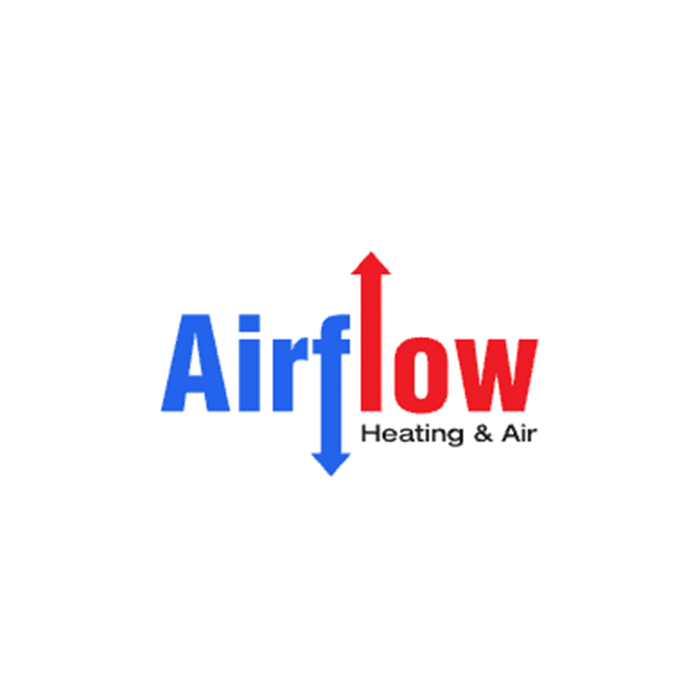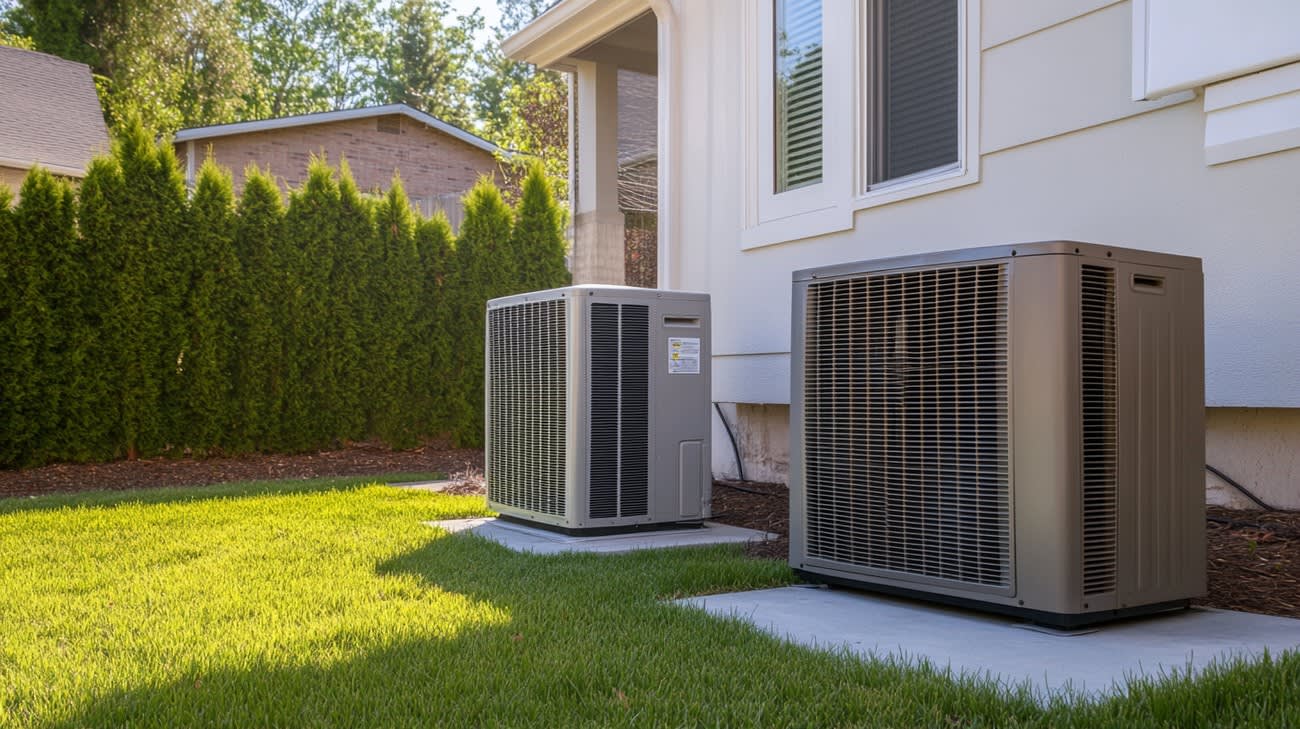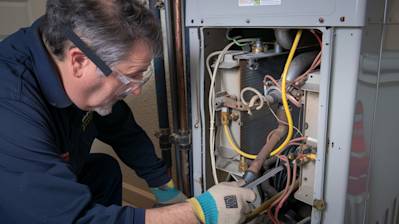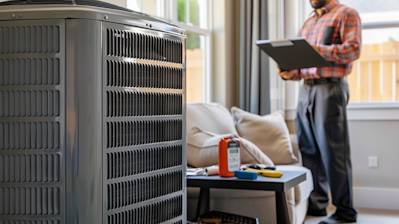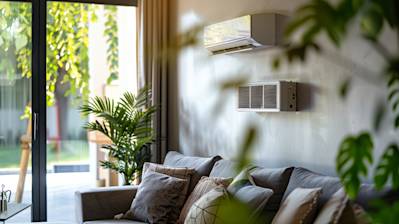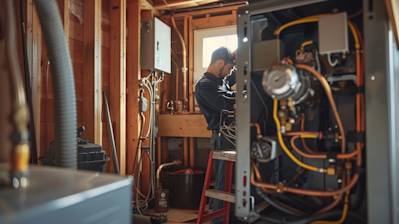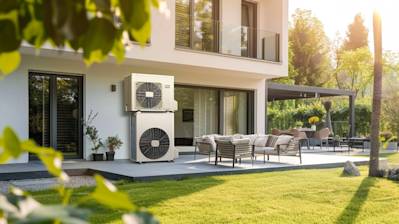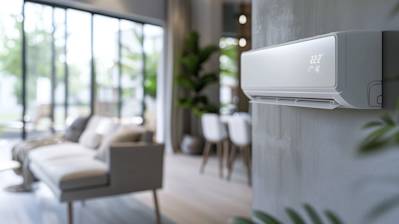A detailed analysis of residential heating and cooling systems will consider both heat pumps and air conditioners (AC). In this comparison of heat pumps vs AC, we will cover functionality, energy efficiency, and cost. The primary aim is to aid you in choosing the best system for your heating and cooling needs.
What Is A Heat Pump?
Before diving directly into the comparison, let's start with understanding what a heat pump is. It is an electrical device that extracts heat from one place and transfers it to another. Unlike an AC, a heat pump doesn't generate heat but moves it around for either heating or cooling purposes.
Heat pumps function with two components:
- An indoor unit known as an air handler
- An outdoor unit similar to a central air conditioner
What Is An Air Conditioner?
An air conditioner is your lifeline during sweltering summer days. It uses refrigerants, condensers, and evaporators to cool your home. The systems work by pulling hot air from inside, cooling it, and then pushing it back.
Air conditioners mainly consist of:
- An compressor that circulates refrigerant
- An evaporator coil where the cooling occurs
- A condenser coil that pushes out the hot air
Difference Between Heat Pumps And AC
Let's get into the primary comparison of heat pump vs air conditioner. The main difference rests on their functionality.
- Heat pumps can provide both heating and cooling, which makes them versatile. However, AC units only provide cooling.
- Heat pumps rely on the ambient temperature to heat up or cool down a property. In contrast, air conditioners utilize refrigerant and electricity to maintain a cool environment.
Energy Efficiency: Heat Pump vs AC
Looking at the front of energy utilization and efficiency, there exists a somewhat blurred line distinguishing the two.
Heat Pumps:
- Heat pumps return high energy efficiency during moderate temperatures. They only need to transfer heat, not generate it, making them more energy-efficient.
- However, their performance can severely decrease in freezing temperatures, increasing their energy use substantially.
Air Conditioners:
- AC units utilize electricity to cool down your property, leading to a higher energy use in hot climates.
- But, their performance remains more consistent across varying temperatures.
Comparing The Costs: Heat Pump vs AC
In a price comparison between heat pumps and air conditioners, both the initial cost and long-term expenses should be taken into account.
- A heat pump has a higher initial cost as it is more complex than an AC unit. But it can be more cost-effective in the long run because it is cheaper to produce heat with a heat pump than with an AC using a furnace.
- An air conditioner paired with a furnace can be cheaper initially. But the ongoing costs of running both an AC and furnace can be higher in cold climates.
So, Heat Pump or AC?
When trying to determine whether a heat pump or an air conditioner is the optimal choice, consider these factors:
- Your regional climate, as varying temperatures can influence the performance of both systems
- Energy costs in your area
- How long you plan to reside in your current home
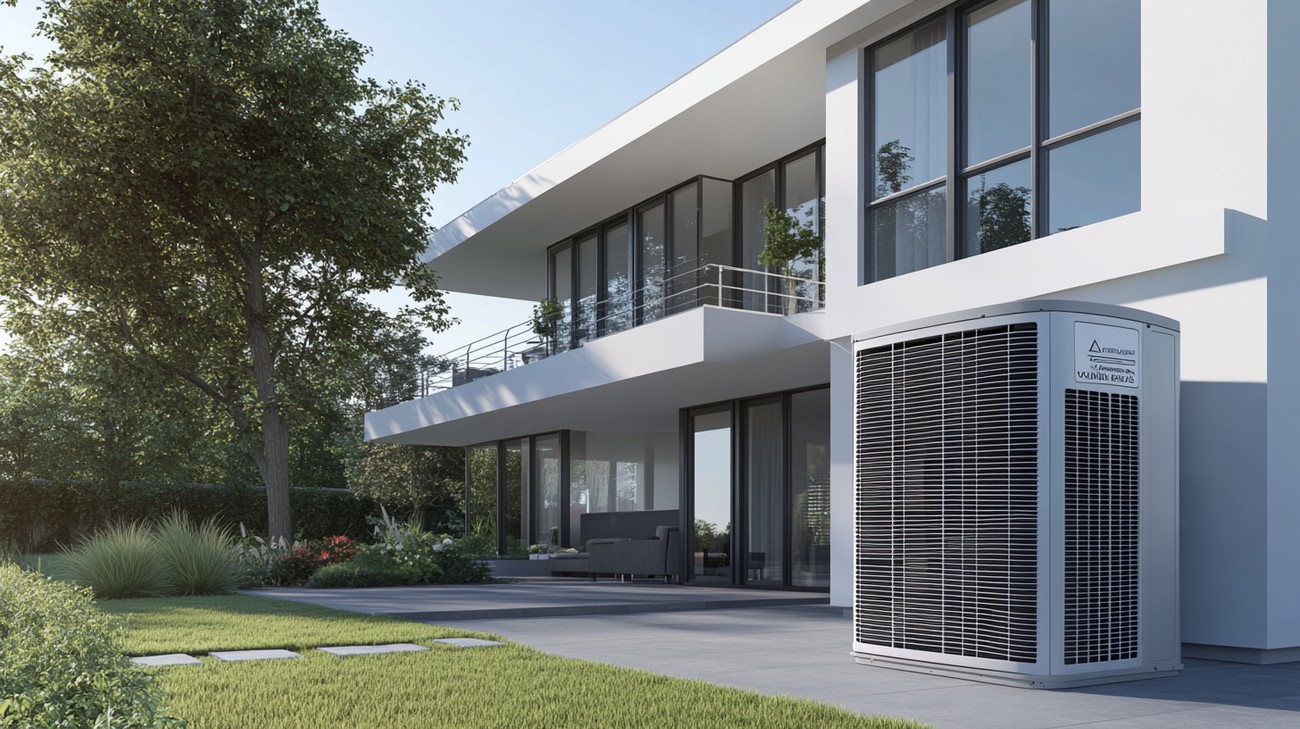
Frequently Asked Questions about Heat Pump Vs Ac
How is a heat pump different from an AC system?
A heat pump and an AC system appear nearly identical, and they both effectively cool your space. However, a heat pump is unique in that it can reverse the cooling process to provide heat during cold weather.
Can a heat pump be used instead of an AC system?
Certainly! A heat pump can be used instead of a separate air conditioning system as it's capable of providing both heating and cooling. This dual feature makes it ideal for places with moderate climates.
What’s more energy-efficient — a heat pump or an AC unit?
Heat pumps are usually more energy-efficient as compared to separate AC and furnace systems because they merely transfer warm air instead of burning energy to generate it. However, this doesn't necessarily mean that a heat pump is the best option for everyone.
When should I choose a heat pump over an AC unit?
The choice between a heat pump and an AC system depends on your needs and location. If you live in a region with moderate to mild winters, a heat pump can provide both your heating and cooling needs. But in areas with extreme winters, a heat pump may not be as efficient, and a separate heating system could be required.
Do heat pump and AC have the same installation process?
The installation process of both systems is similar. However, a heat pump might require some additional steps due to its ability to provide heating. It's essential to have a professional conduct the installation to ensure the system operates effectively and efficiently.
Can I switch from an AC to a heat pump?
Yes, it is possible to switch from an AC unit to a heat pump. However, this transition might require a significant investment as you may need to get a new outdoor unit, indoor air handler, or an entirely new ductwork system.
Is maintenance for a heat pump different from an AC unit?
Due to their dual function, heat pumps typically require more regular maintenance than AC units. Just like with an AC, you will need regular tasks like changing the air filter, cleaning the outdoor unit, and checking for leaks. However, as heat pumps also provide warmth, they also need additional checks before and after winter.
How long do heat pumps and AC units last?
Generally, both heat pumps and AC units can last between 10 to 15 years. However, this duration can vary significantly depending on the maintenance and quality of the units. Proper and regular maintenance can increase the lifespan of both heat pumps and AC systems.

Pros of Heat Pumps
Energy Efficiency
Reduced Energy Consumption
Heat pumps are known for their remarkable energy efficiency. Unlike traditional air conditioning units that produce heat by consuming electricity, heat pumps operate by transferring heat from one area to another. This means that they consume significantly lesser energy, making them an excellent choice for homeowners looking to reduce their electricity bills.
Higher SEER and HSPF Ratings
Heat pumps generally have higher Seasonal Energy Efficiency Ratio (SEER) and Heating Seasonal Performance Factor (HSPF) ratings. These ratings denote the energy efficiency of an HVAC unit - the higher the rating, the more energy efficient the unit. Thus, a heat pump with a high SEER or HSPF rating implies lower energy use and lower electricity costs.
Dual Functionality
Cooling and Heating Capabilities
One of the key advantages of heat pumps over traditional air conditioning units is their ability to both cool and heat a home. With a simple switch of a setting, a heat pump can transport heat out of the house during the summers and bring heat inside during the winters. This dual functionality eliminates the need to purchase and install two separate systems for heating and cooling, resulting in cost savings and convenience.
Better For The Environment
Decreased Greenhouse Gas Emissions
Due to their reduced energy consumption, heat pumps also result in fewer greenhouse gas emissions compared to their air conditioning counterparts. This makes them a greener, more environmentally friendly option for homeowners who are concerned about reducing their carbon footprint.
Cons of Heat Pumps
High Initial Cost
Expensive to Purchase and Install
While heat pumps may help save on energy bills in the long run, their initial cost is significantly higher than that of traditional air conditioning units. This includes not only the cost of the unit itself but also the cost of installation, which can be more complex and time-consuming because of the heat pump's dual functionality feature.
Moderate to Mild Climate Requirement
Not Ideal For Extreme Cold Climates
Although heat pumps can provide heat during the winters, they are not as effective in extremely cold climates where temperatures frequently drop below freezing. In such conditions, a heat pump might need to work harder to extract enough heat from the outdoor air to warm the home, thereby reducing its energy efficiency and potentially leading to higher electricity bills.
Pros of Air Conditioning (AC) Units
Lower Upfront Cost
More Affordable to Purchase
Traditional air conditioning units generally have a lower upfront cost than heat pumps, making them a more affordable option for many homeowners. This can be a major advantage for those who are working with a tight budget and cannot afford a high initial investment.
Effective Cooling
Excellent Cooling Capabilities
Air conditioning units excel at cooling homes, particularly in hot, humid climates. They can quickly and effectively lower the temperature in a room or an entire house, providing immediate relief from the heat.
Cons of Air Conditioning Units
Single Functionality
No Heating Option
Unlike heat pumps, traditional air conditioning units are only capable of cooling, not heating. This means that homeowners need to have a separate system for heating their home during the colder months, which can lead to additional costs and potentially more complex and time-consuming installation and maintenance procedures.
Lower Energy Efficiency
Increased Energy Consumption
Air conditioning units typically consume more energy than heat pumps, particularly when used for extended periods in hot weather. This can result in higher electricity bills, especially during the summer months.
Impact on Environment
Greater Carbon Emissions
Given their higher energy consumption, traditional air conditioning units also contribute to higher carbon emissions than heat pumps. This is a concern for environmentally conscious homeowners who want to minimize their greenhouse gas emissions.

Myths / Misconceptions about Heat Pumps Vs AC
In the quest for the most effective and most efficient heating and cooling system for our homes, the debate often boils down to heat pumps versus air conditioning (AC) units. Unfortunately, various myths and misconceptions surround this topic, leading many homeowners to make less than optimal decisions. Let's delve into these fallacies about heat pumps and AC units and reveal the facts.
Misconception 1: Heat Pumps are Only for Heating
Fact
Heat pumps, despite their name, are capable of both heating and cooling a home. In the winter, a heat pump works by extracting heat from the outside air and moving it inside your home. Conversely, in the summer, it operates like an air conditioner by removing heat from your house and dumping it outdoors. Therefore, a heat pump can replace both your furnace and your air conditioner.
Misconception 2: AC Units are More Efficient than Heat Pumps
Fact
The truth is that the efficiency of a heat pump or an AC unit depends upon various factors, including the model, the region where you live, and your specific heating and cooling needs. Heat pumps tend to be more efficient in milder climates where there is always some heat outside to be drawn in. AC units may be more efficient in extremely hot regions where the additional stress of heating could make a dual-purpose heat pump less effective.
Misconception 3: Heat Pumps are More Expensive to Run than AC Units
Fact
This misconception likely stems from the cost of electricity, but it doesn't account for the efficiency of heat pumps. Yes, heat pumps use electricity, but they do so very efficiently because they move already-existing heat rather than generating it. Therefore, while the cost per unit of electricity might be higher than other fuels like natural gas or propane, heat pumps can still be more cost-effective overall due to their superior energy efficiency.
Misconception 4: AC Units Cool Faster than Heat Pumps
Fact
Both AC units and heat pumps use similar technology and principles to remove heat from your home and dump it outside. Therefore, they should cool your home at roughly the same rate. The speed at which your home cools will depend more on factors such as the efficiency of your insulation, the size of your unit relative to your home’s square footage, and the current temperature outside.
Misconception 5: Heat Pumps are Noisy
Fact
While early models of heat pumps could be quite noisy, advancements in technology have meant that modern heat pumps operate very quietly. Some heat pumps have a noise rating as low as 55 decibels, which is quieter than most conversation.
Misconception 6: Heat Pumps Don't Work in Cold Climates
Fact
While it's true that heat pumps are more efficient in milder climates, it's wrong to assume they don't work in colder climates. Modern heat pump models work effectively even when outdoor temperatures drop below freezing, making them a feasible heating solution for many homeowners in cold regions.
Misconception 7: Heat Pumps Require More Maintenance Than AC Units
Fact
Heat pumps and AC units typically require the same amount of preventative maintenance. Both systems need regular cleaning and tune-ups to maintain optimal performance. However, because a heat pump provides both heating and cooling, it's in use year-round, which could theoretically lead to more wear and tear. But remember, that usage equates to less usage for a separate heating system, so the comparison isn't exactly apples to apples.
Misconception 8: AC Units Last Longer Than Heat Pumps
Fact
Under similar conditions and with similar levels of maintenance, heat pumps and AC units generally have similar life expectancies. Many factors can affect the life span of either a heat pump or an AC unit, such as the model, how it's used, and how well it's maintained.
Having busted these myths and misconceptions about heat pumps and air conditioners, it's easy to see that both systems have their merits. Therefore, your choice between a heat pump and an AC unit should depend on your specific needs, circumstances, and preferences, rather than misconceptions and misinformation.
Summary
After all the discussion on heat pump vs AC, we now realize that both systems have their strengths and weaknesses. Indeed, while heat pumps are incredibly efficient and versatile, offering both heating and cooling functions, they are normally a costlier option upfront. AC units, on the other hand, are typically cheaper but they can only cool your home, making them less versatile.
Don't forget that when you're choosing between a heat pump vs AC, your decision should be greatly influenced by your climate. If you're in an area with milder winters, a heat pump can provide the most efficient heating and cooling. However, if you're in an area where winters are rather harsh, you might want to consider an AC unit for cooling and a separate heating system.
Lastly, whichever you decide on, heat pump or AC, routine maintenance is crucial to ensure they run efficiently and have a long lifespan. Regular check-ups include cleaning, replacing filters, and ensuring nothing is obstructing the airflow. So, whether you decide on a heat pump or AC, remember to spend some time on preventive care – it will pay off in the long run.
About AirFlow Heating & Air
AirFlow Heating & Air is a renowned company based in Sacramento, CA, committed to providing high-quality heating, cooling, and ventilation services. With a highly trained team driven by expertise, we leave our clients feeling comfortable year-round, regardless of the unpredictable California weather. Built on customer satisfaction, our reputation precedes us as a leader in delivering efficient, reliable, and affordable HVAC solutions. Whether it’s routine maintenance, installation, or an emergency, AirFlow Heating & Air is your go-to solution for all things HVAC related!
